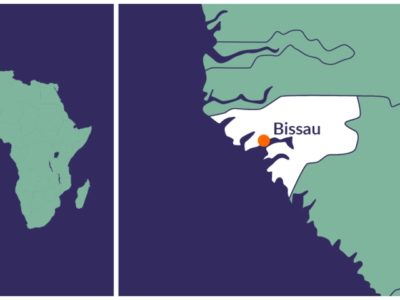The National Information Technology Development Agency (NITDA) has inaugurated a Startup Labelling Committee to drive the implementation of the Nigeria Startup Act (NSA). The committee, launched by NITDA Director-General Kashifu Inuwa Abdullahi, includes representatives from both the public and private sectors. The new committee is tasked with assessing startups’ eligibility for the Startup Label, which grants access to benefits outlined in the NSA.
RELATED: Nigeria Startup Portal opens for labelling
The committee will:
- Review and evaluate startup applications based on defined criteria
- Recommend Startup Label issuance and provide feedback for rejected applications
- Identify opportunities and gaps in areas like diversity and capacity needs
Enacted on October 19, 2022, the NSA establishes a legal and institutional framework to foster the development and growth of Nigerian startups. A key provision of the Act is the Startup Label, which recognizes eligible startups and grants them access to various benefits outlined in the NSA.
During the inauguration ceremony, Abdullahi highlighted President Bola Ahmed Tinubu’s administration’s commitment to creating a supportive environment for young Nigerian innovators. He emphasized the critical role startups play in driving economic development and the importance of the committee’s work in nurturing these enterprises.
Reducing barriers for young entrepreneurs
He detailed several government initiatives aimed at reducing barriers for young entrepreneurs, including financial assistance and mentorship opportunities. He expressed optimism about the future, asserting that with proper support, these innovators could transform their ideas into thriving businesses, contributing significantly to job creation and Nigeria’s economic prosperity, aligning with President Tinubu’s priority to “reform the economy to deliver sustained inclusive growth.”
He called on stakeholders to collaborate in creating a robust ecosystem to empower the next generation of entrepreneurs. Inuwa noted that the committee will establish a solid legal and institutional framework for the Startup Act’s successful implementation, ensuring a participatory approach that benefits all stakeholders in the Nigerian startup ecosystem.
“The committee’s composition reflects the emphasis on collaboration. Representatives from government agencies, industry experts, investors, and startup founders will bring diverse perspectives and experiences, leading to a more efficient and effective labelling process, ultimately benefiting the growth of Nigerian startups,” Inuwa stated.
Advisory committee’s terms of reference
National Coordinator of the Office for Nigeria Digital Innovation, Victoria Fabunmi, outlined the advisory committee’s terms of reference. These include reviewing and evaluating startups’ applications based on defined criteria, periodically updating these criteria, and conducting impartial evaluations of submitted applications. The committee will also recommend the issuance of Startup Labels, provide feedback for rejected applications, and engage with startups for additional clarity when needed.
The committee will periodically review its activities and data to identify opportunities and gaps, such as diversity, equity, and inclusion (DEI), sectors, and capacity needs, which policymakers may need to address. Additionally, the committee will assess its workload capacity to recommend a fair ceiling for the number of applications considered per period, acknowledging that committee members are not full-time positions. Members will be subject to a Code of Conduct, which they must sign before commencing duties.
The Labelling Committee consists of nine members, including four representatives from incubators (ISN Rep, North, and South), two public sector representatives (NITDA, NSIA), two civil society representatives, and a Portal Coordinator who will serve as Secretary.
The inauguration of the Startup Labelling Committee marks a pivotal milestone in implementing the Nigeria Startup Act. With a multi-stakeholder committee guiding the process, the Act has the potential to unlock the immense potential of Nigeria’s startup ecosystem and significantly contribute to the nation’s economic development.
































